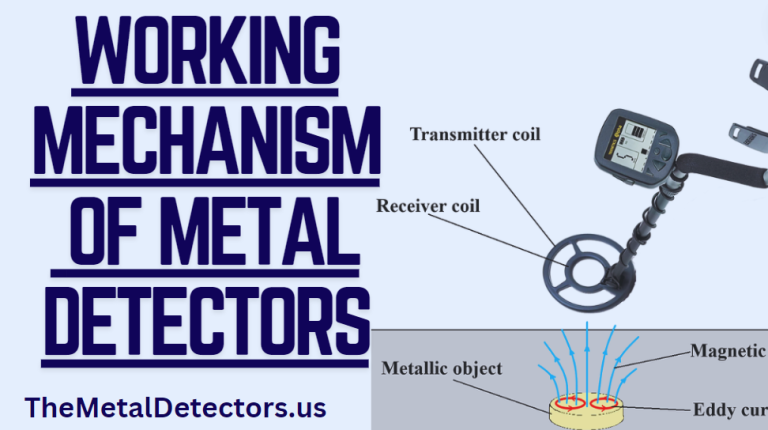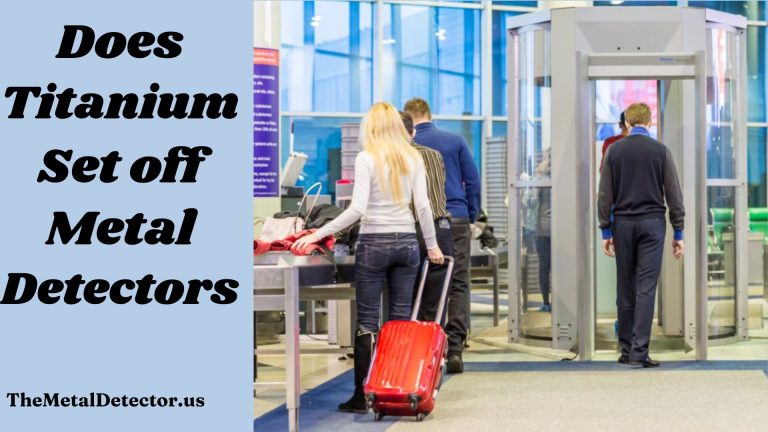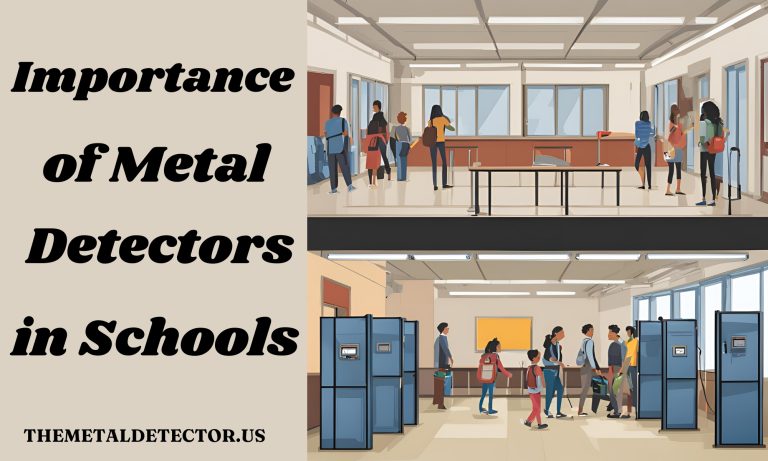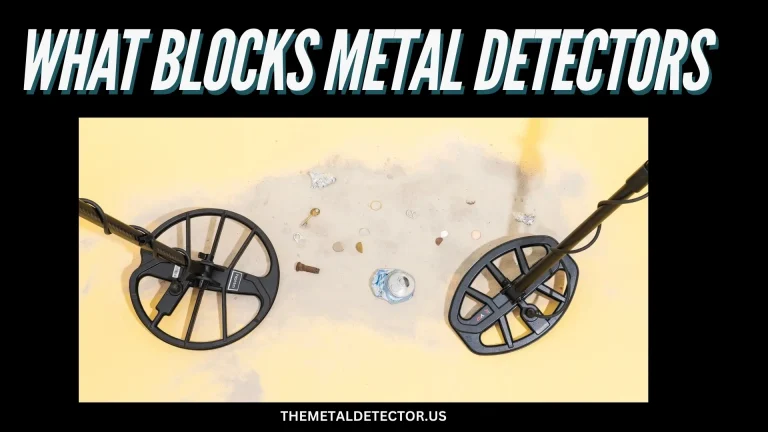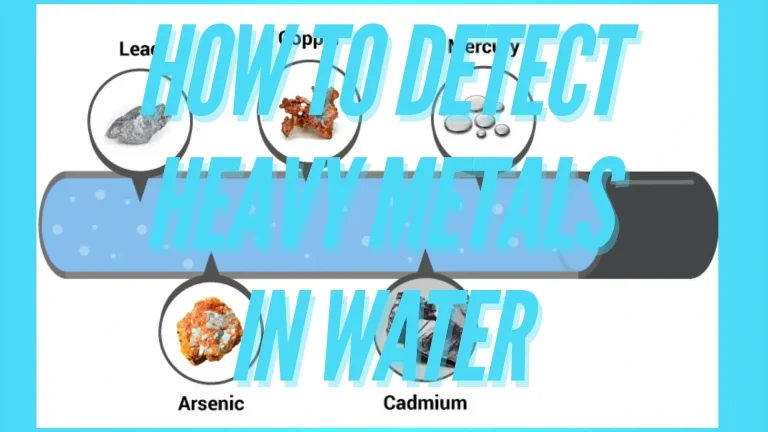Where to Use a Metal Detector (Top 30 Spots)
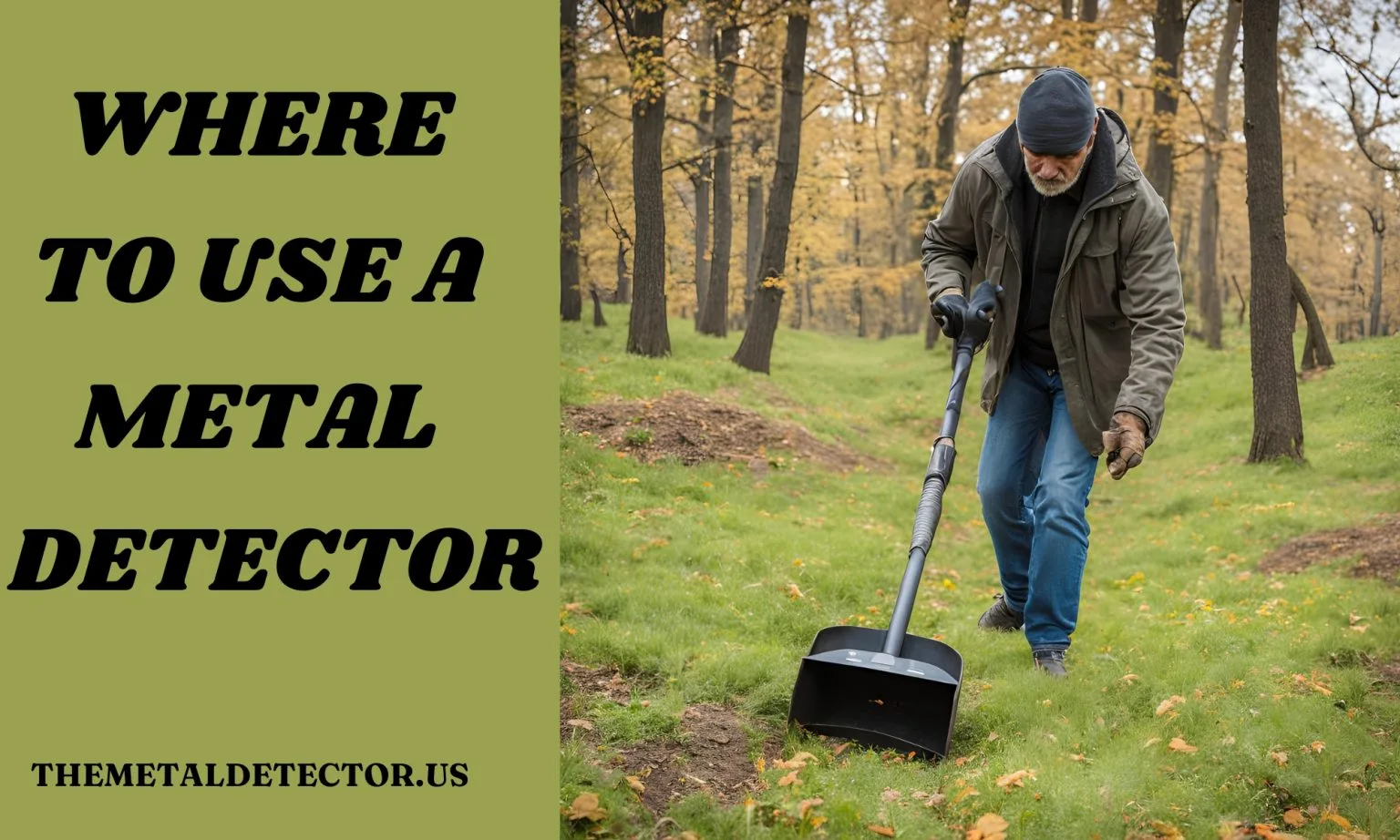
Metal detecting is an exciting and overwhelming hobby. People of almost every age and gender are involved in this hobby. Now the question is, where do they find the best spots for their metal-detecting hobby?
The answer to the question, “Where to use a metal detector?” lies around you. You can find the best locations for your hobby in your city, town, parks near you, or at any Civil War site. You can also get in touch with people who have similar interests as you.
You can also join communities related to metal detecting. A group of like-minded people can greatly enhance your morale. So, let’s dive into this article and learn more about where to use a metal detector and its suitable locations.
Start with the History of your Town

To find the best locations for metal detecting, you must start with your own town. This can be a very exciting and rewarding journey. Begin by researching your town’s history and culture. Look at its early days and the activities that used to happen there.
Study the important events that happened in your town, and you will surely find the locations you are looking for. Old maps, historical societies, and local parks will surely give you information about forgotten trails and landmarks. Just focus on the busiest places in your town in the past, like schools, parks, and construction sites.
You will surely find some historical relics and artifacts of the people who used to live here. You will be connected with the community and heritage of your town during this process. You will also learn about your town’s history, culture, and past.
You may be interested in: Metal detector depth
Top 30 Spots for Metal Detecting Near Me List

There are a lot of spots for metal detecting, and each location has its own rules and regulations. Here, I have provided you with a list of the best places for metal detecting. Check the local laws and regulations before metal detecting at any site. Let’s explore the options:
Public Beaches
Explanation: Public beaches are great places to find lost jewelry, coins, metals and other items left behind by beachgoers. People usually lose their precious and expensive items and metals on beaches while spending time there.
Parks
Explanation: Public parks are Ideal locations for locating old coins, toys, and small relics, especially around picnic areas and playgrounds. Almost everyone goes to public parks once a week or at the weekends to spend quality time with their family.
Old Battlefields
Explanation: Old battlefields have the potential to let you discover historical artifacts like bullets, buttons, and other military items. Because they were once a place of war, they contain many old and historical items, making them ideal locations for metal detecting.
Abandoned Houses
Explanation: Abandoned houses are often rich in relics, household items, and coins, which you can easily find by visiting them. Always seek permission if there is an owner of that house before exploring.
Historical Landmarks
Explanation: Historical landmarks can yield a variety of artifacts linked to the area’s history, such as coins and tools. They are also an ideal location for metal detecting.
School Yards
Explanation: School yards are common places for finding lost items like coins and jewelry, especially around play areas. Students usually drop or lose many items while playing in these play yards.
Fairgrounds
Explanation: Fairgrounds often host events and are ideal places for finding jewelry, tokens, and lost coins. Guests or people who visit fairgrounds lose these items here.
Old Churches
Explanation: Old churches are excellent historical sites with great finds, such as religious artifacts and old coins. This is because these churches were surrounded by religious items and people in the past.
Playgrounds
Explanation: Playgrounds are frequently visited by families and kids, which makes them good spots for small and valuable items.
Farm Fields
Explanation: Farm fields can contain historical artifacts, coins, and even old farming tools because of their usage in farming.
Riverbanks
Explanation: Riverbanks are the areas where people might have lost their items. It would be best if you searched especially near old crossing points.
Woods and Forests
Explanation: Woods and forests are good places for finding relics from past settlements or activities like logging.
Old Homesteads
Explanation: Old homesteads are rich in artifacts and household items. They also offer a glimpse into past domestic life.
Ghost Towns
Explanation: Ghost towns are abandoned towns or sometimes even cities with the potential for finding old coins, relics, and household items.
Camping Sites
Explanation: Camping sites often contain lost items, such as coins and jewelry, left by campers. To retrieve these items, you can simply visit any camping site near you.
Sports Fields
Explanation: Sports fields are prime spots for finding lost coins and small items, especially around bleachers and concessions.
Swimming Holes
Explanation: Swimming holes are an excellent place for finding jewelry and coins lost by swimmers while swimming.
Fishing Spots
Explanation: At fishing spots, fishermen often lose small items like coins, knives, and fishing gear.
Old Train Stations
Explanation: Old train stations are historical locations that can contain a variety of old coins and railroad-related items that might have been lost during its operation.
Amusement Parks
Explanation: Amusement parks are often visited by large crowds, making them good spots for lost valuables. Simply visit any old amusement park to find good lost valuables.
Old hotels and Bars
Explanation: Old hotels and bars are the most common places visited by large numbers of people. People stayed there in the past and forgot their valuables. So visit any hotel or bar to find good valuables.
Scenic Overlooks
Explanation: Scenic areas are places where there is a large crowd, so there is a high chance of finding gold or coins.
Roadside Rest Areas
Explanation: Roadside areas like bus stops, shops, and stools are where most valuables such as gold and coins, are found.
Old Mines and Quarries
Explanation: Old mines and quarries are prime locations for finding gold and old antiques. They can also contain mining equipment.
Boat Docks and Marinas
Explanation: Boat docks and marinas are familiar places where boaters drop off most valuables, including keys, coins, and fishing tools.
Empty plots
Explanation: Empty plots are places where coins and previous structure material may also contain valuables.
Rural Properties
Explanation: Rural areas are the most common places to find old antiques, coins, and agricultural equipment.
Old Trails and Pathways
Explanation: Old trails and pathways are the most common historical places where people lose most of their coins and small valuables.
Golf Courses
Explanation: Golf courses are the most visited places for people to spend their time and play golf. However, people may lose their valuables and golf-related materials there.
Old Drive-In Theaters
Explanation: Old drive-in theaters are the most popular social spots where people hang out to spend time and enjoy themselves. This place is most suitable for finding gold coins and tokens.
Check out our insightful article on: Best metal detectors for beginners
Some Useful Tips for Successful Metal Detecting
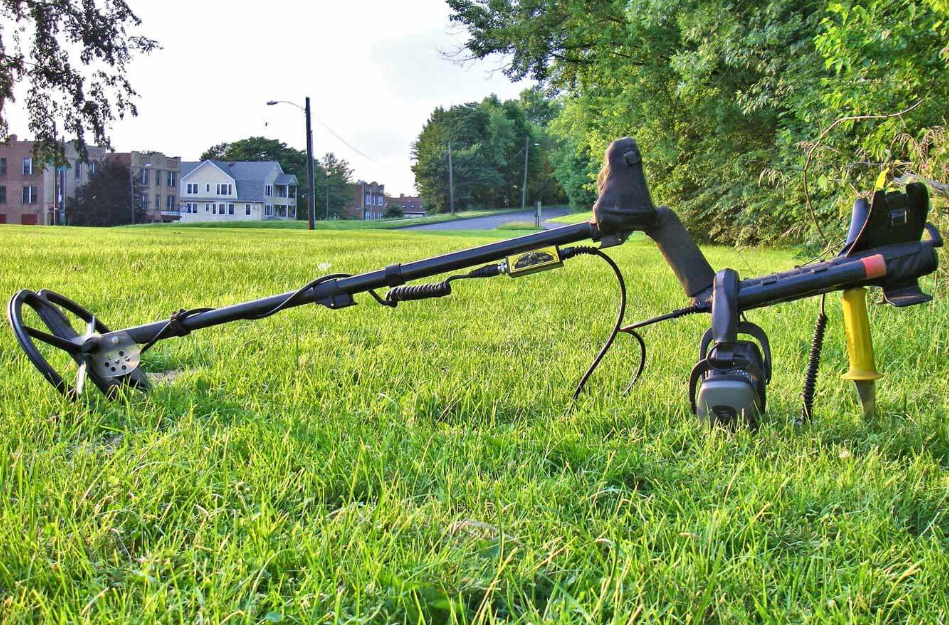
Although metal detecting is an exciting and comprehensive hobby in which you get to experience fun and learn together at the same time. Some tips from any experienced or professional metal detector would be the cherry on top for you. I will share my experience and give you some valuable tips related to metal detecting. Here are some tips for successful metal detecting:
Do your research
First of all, you must research a good and potential location where there is a good chance of finding valuables. Looking into the history and old maps and talking with the locals are great ways to do this. Historical areas are great locations to find valuables.
Choose the suitable detector
Choosing the right metal detectors is the most important step in finding gold, coins, or beach hunting. Learn its features, signals, and depth capabilities.
Learn your detector
You need a good metal detector, but you also have to learn how it works perfectly. So spend more time learning how your metal detector works, all of its settings, how signals work, and how different the tones are for different types of metals.
Be patient and persistent
Be patient and persistent because metal detecting requires patience. Also, expect to find a lot of mixed junk and treasures. So, you must be patient in finding valuables in detection.
Sweep Methodically
Always use a slow and methodical motion to sweep the area for better detection. Move the coil to every corner, ensuring no area is left, and make a path for full coverage. Keep the coil close to the ground for better detection.
Seek Permission
If you are entering private property for detection, you should always get permission before entering that property. Always respect and accept the laws and regulations for public or private areas.
Check Laws and Regulations
First, learn all the laws and regulations related to metal detection in that area, especially those regarding historical sites, private properties, and permits. This will ensure your safety according to their laws.
Detect During Off-Peak Hours
Detect during the off-peak hours, especially early in the morning or late in the evening. At that time, there are fewer people there, and you can easily detect in that area without any disturbance.
Record Your Finds
Always write and keep a record of your findings, including the locations and all the important details. This can help you identify where you find valuables and add historical value to your finds.
Stay Safe
Go to safer areas and always be aware of your surroundings. You must carry your mobile phone and first aid kit with you. Always let someone know your exact location especially when you are in remote areas.
If you are interested in buying a metal detector for finding gold then you must check out this insightful article on it.
Accessories for finding treasure near you
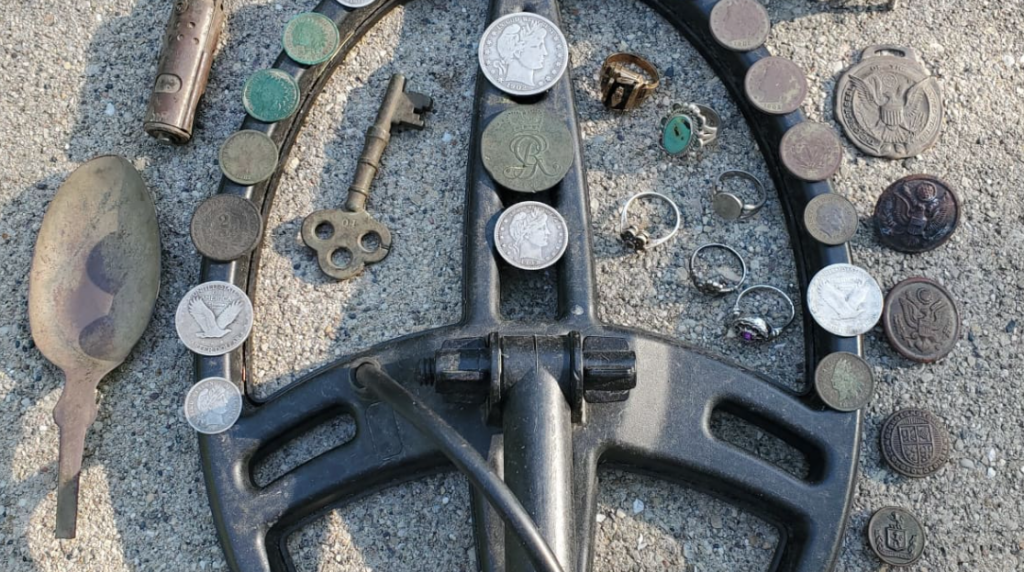
Some accessories that you always need for metal detection. These tools make it easier for you to find a treasure near you. So the list of such types of tools is given below:
Pinpointer
A pinpointer is a small handy device that helps you exactly locate metal objects in the ground. It detects the location of valuables and coins exactly in that area, so you can find them in less time and faster.
Digging Tools
Digging tools are the most essential tools for finding valuables by extracting the targeted area. These tools help us dig into that targeted location without damaging the valuables. Such tools include trowels, digging knives, and small shovels.
Headphones
Good-quality headphones enhance the audio quality of the metal detector. They help you hear the detector’s signals more clearly and easily. Even if you are in a noisy area, they will not disturb others by their noises.
Finds Pouch
Always carry a durable pouch or bag to store your valuables finds. This will help you to keep your valuable findings safe and well organized.
Knee Pads
Knee pads are essential for protecting your knees while digging. They will provide you with comfort and protection when you kneel down to dig.
Sand Scoop
Sand tools are tools for quickly sifting through sand. It is used to sift the sand quickly from that area. These tools are helpful, especially in areas in which there is sandy ground or on beach areas.
Gloves
Gloves are most important to keep your hand safe from sharp objects while digging. It will also help you to keep your hands clean while digging. So you must wear gloves before you dig in the ground.
Coil Cover
Coil covers are very important accessories that protect the metal detector’s coil from getting scratched. They protect the coil and save you from more problems and the loss of your precious companion.
Backpack or Carry Bag
It would be best to keep a backpack with you while on your metal-detecting journey. A bag will always help you keep all your accessories and even your metal detector in it, eliminating the need to carry every single item by your hand.
GPS Device or Smartphone
A smartphone or GPS device can help you mark and keep the location of the spots where you have already looked or found items using your metal detector. It can also help you see the places that you want to explore further. A GPS device will also help you navigate.
Conclusion
In conclusion, knowing “where to use a metal detector” is a key to your successful metal detecting journey. Whatever your location, whether it is any historical park, war site, old church, etc. Each area has unique items to be discovered, and with the knowledge and the right equipment, you can easily find those historical items. You must remember to search and enter every location with the permission of its owner or caretaker to avoid any problems. It will help you find your answer to the question of where to use a metal detector.

